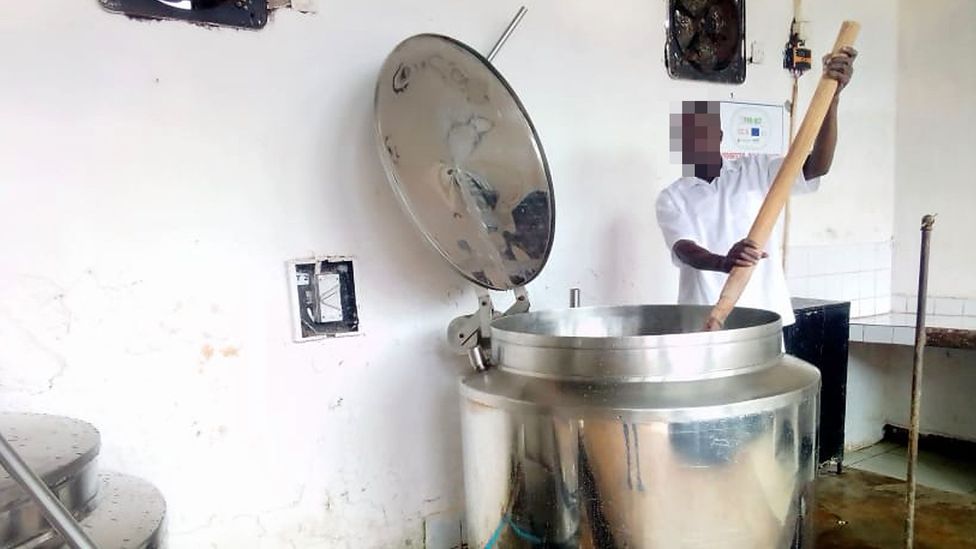At Mulanje Prison in southern Malawi, convict Felix Chimombo wakes up early every morning to prepare food for his fellow inmates. With a handful of other prisoners, Chimombo’s responsibility is to make sure that by 7:00 AM, they have prepared food for 200 or so inmates at the prison. The prison previously used an average of two cubic meters of wood to prepare the day’s food, an arduous process that could last for five hours.
But then came a rather unconventional replacement for the wood. The prison was installed with a biogas digester, a system that converts organic matter – including human waste – into energy.
Made from plastic sheets, the system has an inlet that feeds the poop and other debris into a digester, submerged in water. The water creates an anaerobic environment that allows bacteria to break down the biomass into methane, which is pushed through a piping system to the gas stoves in the prison’s kitchen.
The prison’s officials say that since the installation of the biogas digester, the reformatory has cut its firewood consumption by around half, from 60 cubic meters a month to around 29 cubic meters. The digester has also helped to reduce the electricity bills at the prison, saving an average of MWK 310,400 (£290/$400) each month on firewood and electricity.
So far, the biogas digester is not yet at capacity. The digester was installed in December 2020 when the prison reduced the number of inmates in line with Covid-19 prevention measures. A total capacity, the digester could process 230 cubic meters of fecal matter a day. Prison officials are hopeful that the digester will help reduce expenditure on electricity and firewood by up to 80% as time goes on.




